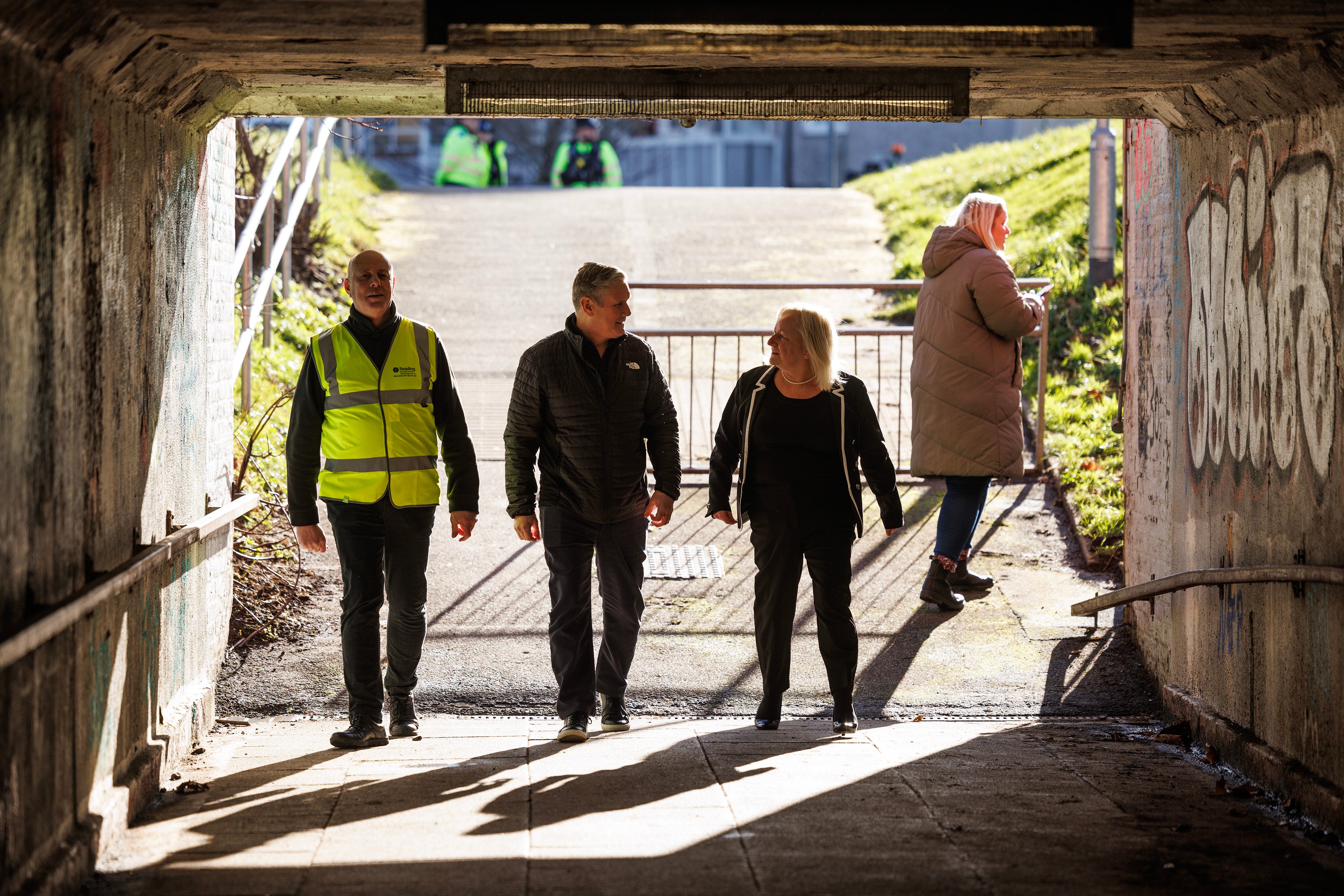Hooligans wreaking havoc on local communities will be slapped with “respect orders” by the home secretary in a fresh crackdown on anti-social behaviour.
Harking back to Tony Blair’s Respect Agenda, which promoted the use of Anti-Social Behaviour Orders (ASBOs), Yvette Cooper will give police new powers to tackle troublemakers causing misery in town centres and neighbourhoods.
Under changes announced on Friday, Ms Cooper will give the police and local councils powers to ban persistent offenders from town centres or from drinking in public spots such as high streets and local parks.

She will also give police additional powers to seize without warning vehicles which are associated with anti-social behaviour such as deafening off-road bikes and e-scooters being ridden dangerously on pavements. The Home Office said it will tackle the scourge of street racing, cruising and car meets, which can see hundreds of cars gather in public spaces with loud music and aggressive engine revving.
Ms Cooper’s new respect orders channel former PM Sir Tony’s 2006 respect action plan, which aimed to “put the law-abiding majority back in charge of their communities”.
In a speech launching the initiative at the time, Sir Tony said: “No liberal democracy can countenance the tyranny of a minority in any of its communities. We, as government, will discharge our duties. We will attempt to create the conditions in which respect can flourish.
“I believe in the innate decency of the British people and I believe that, together, we will eradicate the scourge of anti-social behaviour and restore Respect to the communities of Britain.”
And 18 years on, Ms Cooper said: “Antisocial behaviour chips away at communities’ sense of confidence and pride, undermines local businesses and can have a devastating impact on victims.

“Respect Orders will give police and councils the powers they need to crack down on repeated anti-social behaviour, keeping our communities safe and ensuring repeat offenders face the consequences of their actions. We will also make it easier to seize the vehicles causing misery in too many neighbourhoods, including deafening off-road bikes or e-scooters ridden dangerously on the pavement.”
The home secretary said too many town centres and neighbourhoods across the UK are being “plagued by anti-social behaviour, be it street drinking, harassment or vandalism on the high street or noisy and intimidating off-road bikes terrorising our estates”.
Government figures showed that last year over a third of people experienced or witnessed anti-social behaviour, with 1 million police recorded incidents.
Under the shakeup, perpetrators of anti-social behaviour will also be required to tackle the root causes of their behaviour, with mandatory rehabilitation through drug and alcohol treatment or anger management courses.
Those who breach the terms of their respect orders face being put behind bars for up to two years or unlimited fines, the Home Office warned. They can also be hit with community orders such as unpaid work and curfews. Measures banning public drinkers from parks and high streets will be piloted to ensure they are as effective as possible.
The National Police Chiefs’ Council welcomed the changes, saying they will give officers the power to tackle those “persistently making our streets and public places feel unsafe”.
Deputy chief constable Andy Prophet, the NPCC’s lead on anti-social behaviour, said: “I am pleased to see the ability to ban offenders from our high streets and parks, with a power of arrest for those who ignore such direction, as well as the power to require individuals to seek help for underlying causes of their poor behaviour such as drug or alcohol misuse.”
Anti-social behaviour charity ASB Help also welcomed the move, adding that it is “keen to see how the respect orders will be implemented”.
Chief executive Harvinder Saimbhi said: “As the national charity that supports victims of ASB, we regularly hear from victims who share with us the impact and harm they experience from repeated incidents of ASB.
“We welcome the approach of addressing the root causes of the anti-social behaviour which will in turn work towards reducing reoffending rates, therefore bringing respite to victims and communities. We are keen to see how the respect orders will be implemented.”











